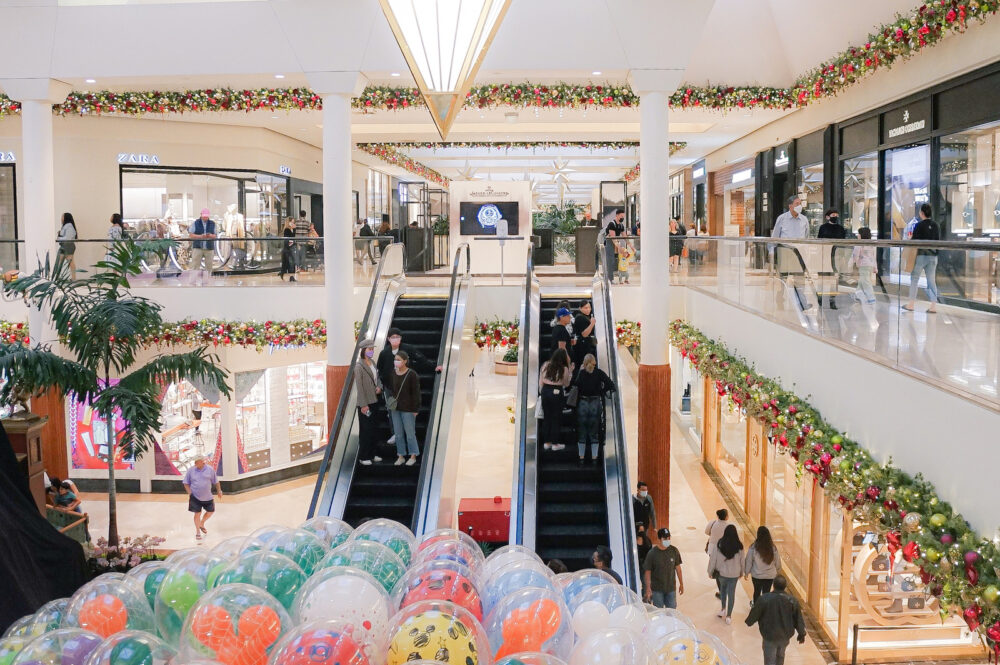
By Hien Bui
As the Los Angeles Port faces record backlogging of some 200,000 shipping containers, Californians are looking at a holiday shopping season that seems to promise more empty store shelves and gifts stranded in the ocean than the return to pre-pandemic Black Friday frenzies. Although the national supply chain crisis might put a damper on holiday spirit, we should use this opportunity to reexamine how we gift shop for others—and how this selfless act of giving could have negative consequences for our environment.
It’s a tried and true story. The holiday season fast approaches and the zeitgeist of flash sales and record deals is a whirlwind. It spins every well-meaning, recycling customer into someone who might buy out a row of gimmicky mugs just because they need a weighty stocking stuffer. You want to show your loved ones you care through the best manufacturing money can buy. However, mindful purchasing shouldn’t be off the table just because your neighbors have started to hang up Christmas lights.
Overconsumption is a word that’s been increasingly aligned with fast fashion as the meteoric rise of brands like SHEIN and the breakneck speed of the trend cycle means clothes are out of style and promptly discarded faster than ever. A similar but larger scale concept applies to the word’s linkage with holiday consumerism. Whether it’s shelling out money on the latest clothes or gadgets that become dated within months (speculation over next year’s iPhone 14 has already started as iPhone 13 shortages may last until February of 2022) or literally loading our physical or digital carts under the “quantity over quality” approach, we “overbuy” gifts that our receivers tend to not fully use.
Unwanted gifts end up collecting dust in people’s homes, regifted to someone else as part of next year’s Christmas dash, sold online (adding to the immense environmental cost that transport packages across borders everyday takes) or tossed away in the new year’s first garbage collection day.
It may seem like an impossible, lose-lose situation. At best, not getting your loved one or distant-but-not-too distant relative a gift will be a reflection of your Ebenezer Scrooge level of stinginess. At worst, it’d be a holiday horror scene if that persistent, underlying fear comes true—the one where the recipient you crossed off your Christmas list will decide that, this year of all years, they’re going to get you something so indescribably thoughtful that you both will be left speechless when you present them with a beautifully wrapped box of nothing. So what are you to do if you want to avoid those landmines but also not contribute the estimated $15.2 billion dollars spent on unwanted gifts or the number of those presents sent to the landfills?
Making a gift is a good alternative that helps avoid the “buying gifts for the sake of it” rabbithole. It doesn’t get more Yuletide spirit than thoughtfully putting in the time to create something based on and for a person in your life. It also simultaneously shows how genuinely you care and makes the recipient infinitely more guilty if they want to throw away your dedication.
If you’re more pressed on time, you could choose something from lists of zero waste gift ideas although it may be difficult to imagine explaining your choice behind getting everyone you know a compostable phone case unless they were really in the market for one.
Like with any issue regarding overconsumption and what a consumer can do about their own participation within it, it comes down to purpose before impulse.
The holiday decorations in stores may be tempting. The endless deals online may have you adding things to your cart just to watch your savings accumulate. However, stronger than your fear of your recipient being disappointed or the unexplainable phenomenon of wanting to throw all your money at retailers decked out for the holidays, should be your care for the people in your life.
We spent last year’s holiday season (and much of last year in general) largely alone and quarantined in our homes. Shoppers tended towards more personalized holiday gifts to save money, limit trips outside of the house and convey connection to recipients they couldn’t meet with under COVID guidelines. We learned to appreciate the time we have together and that no amount of online gifts could replace the people we care about being around for the holidays.
In this second Christmas since the pandemic’s outbreak, we continue to face problems both wrought by the global crisis and preexisting questions about the future that lies ahead of us. The supply bottleneck promises to inflate the prices for holiday goods not held up in ports. The United Nations’ climate summit faced criticisms about not doing enough to meet the urgency of the crisis. The Pfizer vaccine has been cleared for children ages 5 to 11 years old as protests over vaccine mandates mount.
In these strange, confusing times, what we really all need this holiday season is the people in our lives to remind us that we’re going through all of this with someone who cares.





